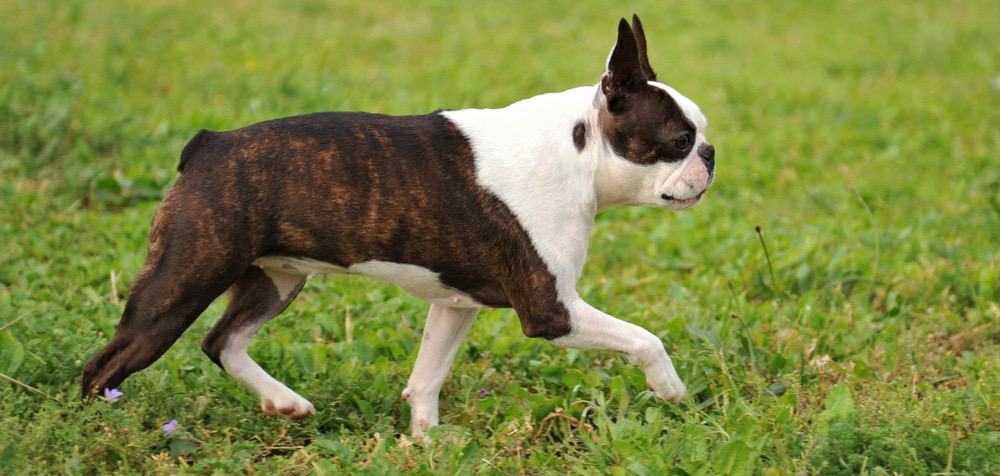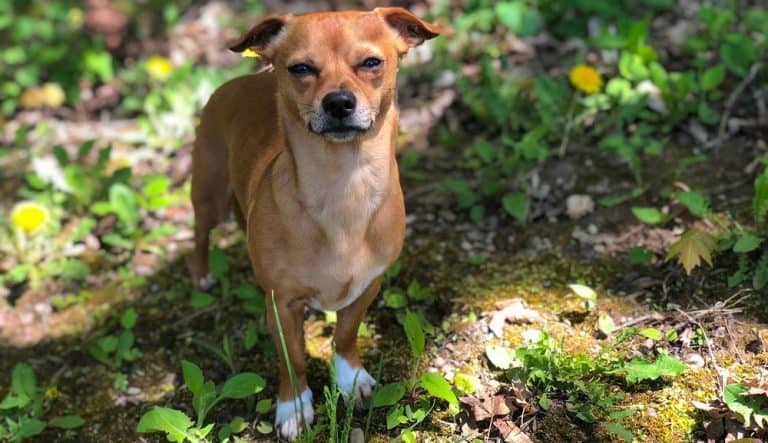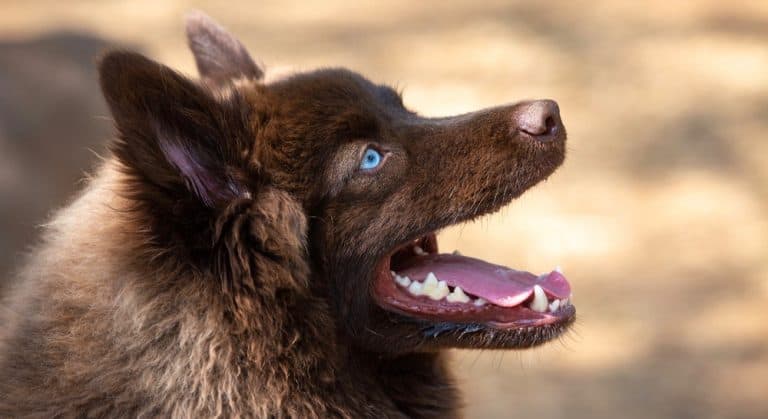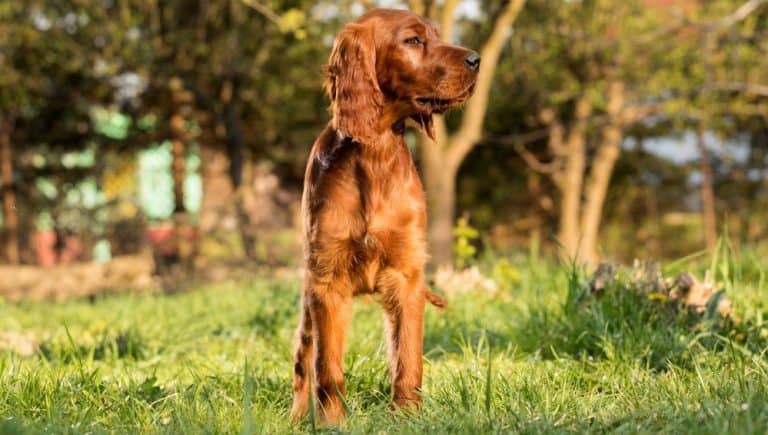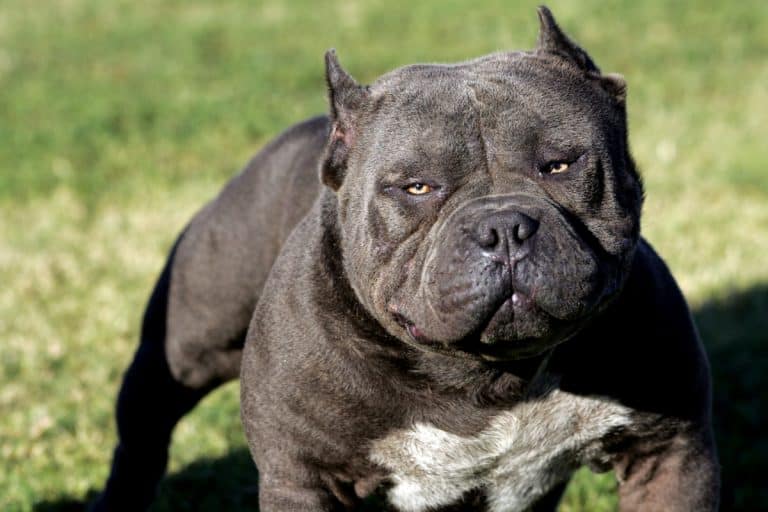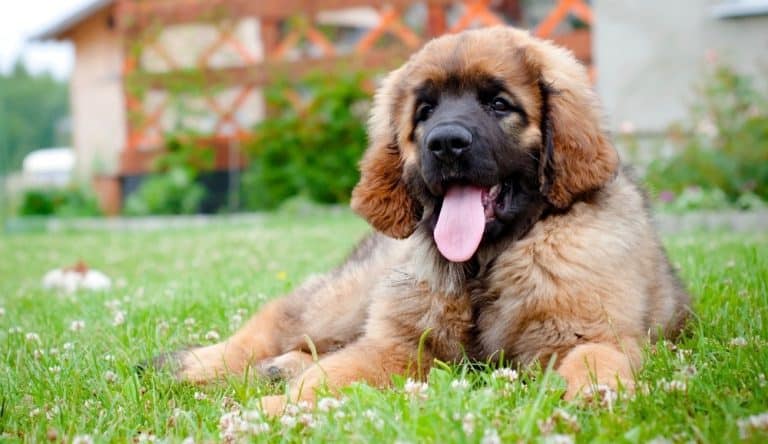Boston Terrier Growth Chart (Weight Chart) – When Do Boston Terriers Stop Growing
Known today as affectionate and gentle comrades, the Boston Terrier what originally bred to be fighting dogs. There are sometimes called the ‘American Gentleman’ because of the tuxedo-like black and white markings.
These dogs a great for apartments and families who live in any type of home because are generally easy to get along with. They have a playful nature, and they need sufficient physical activity. You will have a loyal companion if you know how to take care of your Boston Terrier.
To be the best dog parent, you should monitor your Boston’s developmental stages. This can be helpful because knowing what you should look out for can allow you to better care for your dog and also reduce or prevent stressful situations. This Boston Terrier growth chart can assist you.
When Do Boston Terriers Stop Growing

Usually, a Boston Terrier is finished growing at about 10-14 months old, which is about half the time of large breed dogs. This is mainly because large breed dogs need more time for bone and joint development to attain their larger and taller stature.
Once a dog has reached one-year-old, he is considered an adult by most standards but in most cases, there is still some development that needs to take place.
Boston Terriers undergo rapid growth in their first year. Their size and height are good predictors of the stage of growth they are currently in. It is also advised to have regular check-ups with your vet.
Boston Terrier Weight Chart
The Boston Terrier weight chart below outlines the approximate size of your Boston Terrier’s weight throughout the stages of development. In most cases, there is no need to worry if your dog’s weight is not exactly the same as what is listed in the Boston Terrier weight chart.
Nonetheless, it’s important to note that if you find your Boston Terrier’s weight is significantly less than any of the numbers that are on the chart, you should make an assessment of his health. It may be that your Boston Terrier is too small and may have an increased risk of developing several health problems.
If your Boston Terrier’s weight is greater than any of the numbers in the chart, you should not think about it too much. Although your Boston Terrier may not fall within the perfect range, having a few additional pounds over the normal range is fine.
Just ensure that you always check with your veterinarian. You can utilize this Boston Terrier puppy weight chart to guide you but know that the figures won’t be suitable for every case. You would have a better idea about what is going on with your dog because you spend the most time with him.
With Boston Terriers, the male and female usually have the same weight. This is different from other dogs where there is a big difference between the weights for female and male dogs. When you are looking at their development stages, they appear to be the same.
Boston Terrier Puppy Weight Chart
| Age | Average Weight in Lbs | Average Weight in Kg |
|---|---|---|
| 1 Months | 2.5 lbs | 1.2 kg |
| 2 Months | 4.4 lbs | 2.0 kg |
| 3 Months | 6.6 lbs | 3.0 kg |
| 4 Months | 8.8 lbs | 4.0 kg |
| 5 months | 12.1 lbs | 5.5 kg |
| 6 months | 14.3 lbs | 6.5 kg |
| 7 months | 16.1 lbs | 7.3 kg |
| 8 months | 19.8 lbs | 9.0 kg |
| 9 months | 20.9 lbs | 9.5 kg |
| 10 months | 21.3 lbs | 9.7 kg |
| 11 months | 22.0 lbs | 10.0 kg |
| 12 months | 23.1 lbs | 10.5 kg |
Boston Terrier Growth Chart – What To Expect

Birth – 2 Weeks
From birth to 2 weeks old your puppies are in need of warmth from their mothers and are born helpless. During the neonatal stage, puppies are toothless blind, and deaf.
Right after birth, the senses of touch and taste a present, but they mostly snuggle close to their mothers for warmth and milk. You can expect them to be sleeping and nursing most of the time as they develop their strength. They can’t walk yet because of their undeveloped muscles.
Newborn puppies need an optimal temperature to survive because they are inclined to get a fever. The puppies need this time with their mothers so that they may grow.
3 Weeks – 12 Weeks
This is an important time in your Boston’s development. He will open his eyes and develop his sense of hearing and smell. His teeth will form, and he will develop muscles strong enough to stand, run, bark, wag his tail and play.
He will slowly begin to be aware of his surroundings as his eyesight develops. He will also develop control over his bowel movement and bladder. His muscle coordination will also be improved as he plays with his littermates.
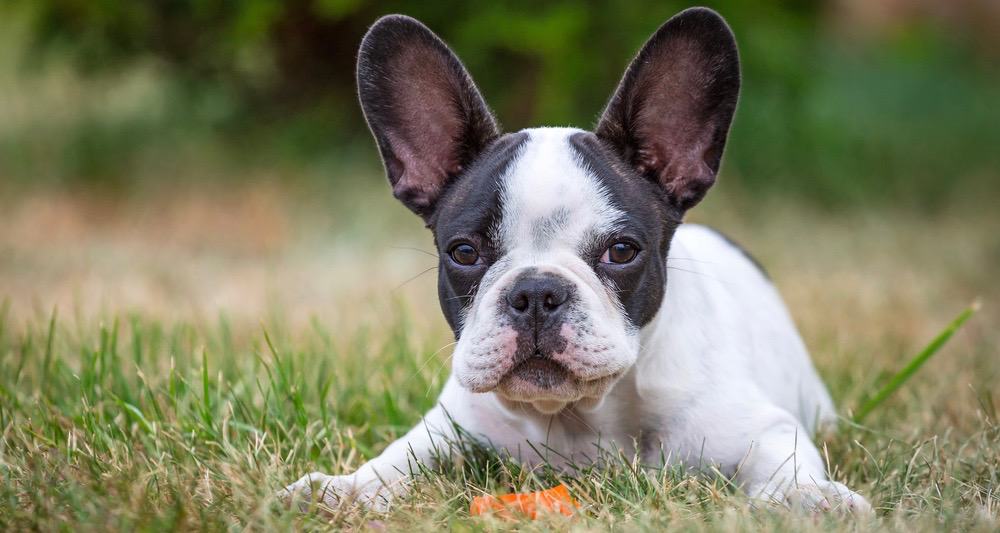
This is the period when your puppy should receive his vaccinations, and he is weaned from milk to solid foods because the mother’s milk begins to run out. This is also the best time to start training your puppy.
4 Months – 6 Months
During this period, your puppy’s adult teeth start forming, and he will enjoy chewing on anything he can get his little paws on. You will be the primary influencer of the pup, so quality time is essential to form that initial bond.
Training should continue during this stage as well as ample playtime and exercise. This will promote muscle and bone health.
7 Months – 12 Months
At this stage, your Boston Terrier usually comes to sexual maturity. This is when dogs typically go through drastic hormonal changes which occur differently in male and female puppies.
Female dogs who are sexually mature, usually go into heat about twice annually and lasts for 2-3 weeks. On the other hand, male dogs are sexually active all throughout the year but are most fertile after they have reached the age of one year to a year and a half.
Adult
Boston Terrier’s will enter adulthood when they are between 12 and 14 months old. At this age, they tend to fall into an adult-like personality and will no longer physically mature. Their overly playful temperament subsides and they enter full maturity. However, this does not mean that they won’t enjoy physical activity.
Factors That Affect Boston Terrier Puppy Growth
Genetics
Inherited concerns have a great impact on a Boston Terrier’s growth. These genetic factors regulate the rate of growth along with other important determinants that add to their development.
Your dog’s parents play a considerable role in your dog’s health as those genetics are passed down and affect your dog’s ability to grow as well as his inclination to certain diseases.
Nutrition
The kind of food given to your Boston Terrier puppy will have an impact on his ability to grow. If you always give your dog low-quality food without the proper vitamins and minerals he needs to grow then his growth will be thwarted.
Many people seek to feed their dogs the best foods available on the market because there are poor quality foods that do not provide enough nutrients. These foods are full of fillers that contain inadequate nutrients needed for a growing puppy. They impede the growth of your dog.
Physical Activity & Health
Boston Terriers are playful dogs. They need sufficient exercise so that they won’t be bored and make mischief in the house. Physical activity is needed so that proper growth and bone density to occur. With a daily keep-fit program, your puppy can have stronger bones and a fitter body that will add weight to your puppy while keeping him healthy. Your Boston Terrier will also enjoy this playtime in the form of exercise and have an improved mood and overall well-being if allowed to exercise regularly.
What If My Boston Terrier Is Not The Right Weight
You can usually tell how much your Boston Terrier will weigh by the weight of their parents. In some cases, your puppy’s breeder should be able to tell you.
Boston Terriers who are overweight, are more likely to develop health problems. Therefore, it is a good practice to ensure that your Boston maintains a healthy weight.

It’s wise to look at Boston Terrier growth charts for reference, but every dog is different and needs to be treated as such. To determine if your Boston is overweight, there are numerous bodily signs you can look for.
For example, if you run your hands along his side, you should be able to feel his rib cage. Additionally, if you can’t identify his waist, he has a big belly and lacks enthusiasm for exercise, you need to reduce his food intake. These are all indicators that he is overweight.
Alternatively, if you can easily see his spine and rib cage then this is a good indicator that he is underweight. You should increase his feeding and also consult your veterinarian.
What Type of Food Should I Feed My Boston Terrier Puppy
A complete diet with healthy nutritious food is the best thing you can feed a Boston Terrier puppy. The food should be high in protein and fat, but low in carbohydrates because this causes them to gain excess weight. It should also be easy to swallow and chew.
Because of the Boston Terrier’s unique flat facial and jaw structure they may have trouble picking up food. It is incumbent upon the owner to provide the right food.

It is also important that you select a Boston Terrier puppy food that is tasty to your puppy so that he will enjoy eating it.
How Long Are Boston Terriers Pregnant?
Typically, female Boston Terriers spend approximately 62 days in gestation after they are bred. However, any period between 54 and 72 days is the standard. Most dog breeds are okay without human intervention; on the other hand, some breeds require a bit more attention.
Unfortunately, Boston Terriers often require Cesarean sections. You pay a visit to your vet to determine the best course of action for your Boston Terrier. Failure to do this could result in a life-threatening situation for your dog.
If you believe your dog to be expecting, a scheduled examination at your veterinarian should be able to confirm this for you. It is usually difficult to ascertain the definite date of conception for most owners.
How Many Puppies Do Boston Terriers Have?
Many new owners want to know the litter size of their Boston Terriers. These dogs usually have 3 to 5 puppies, and in rarer cases, the largest litter size is usually 7 pups.
Hardly ever will the Boston terrier have more than 7 puppies in a litter. You should also remember that healthier dogs will be able to give birth to more puppies.
The risk for c-sections in the Boston Terrier is because of the size of their heads. There have been many healthier Boston Terriers who have had normal vaginal births.
Whenever Boston Terriers are lacking calcium, in their diets, it extends the labors and makes it more painful on your dog. This in turn increases the risk of c-section.
When Should A Boston Terrier Be Spayed Or Neutered
Because Boston Terriers have an increased risk of c-sections, many owners consider having them spayed or neutered so that their life would not be in danger. It is ultimately up to the owner if they would like to wait until their dog gives birth a few times or wait until after the first heat cycle.
This dog breed usually has a difficult time giving birth naturally. You are putting their health in danger, whenever they are bred. Experts should do breeding Boston terriers.

Also, if your dog is spayed, they remove her ovaries and uterus, so you don’t have to concern yourself about ovarian cysts, or cancers of the reproductive tract. Also, your male dog won’t try to escape the fence in search of mates when they are in heat.
However, when dogs are spayed or neutered, they tend to be less active and gain weight. If you decide to have these procedures performed on your dog, you need to ensure that they get proper exercise.
What Is The Life Expectancy Of Boston Terriers?
The Boston Terrier usually has a life expectancy that ranges are between 11 and 13 years. However, many dogs can live longer or shorter and this is contingent on diet, environment, lifestyle, and genetics.
To increase your Boston’s life-span you should ensure that he is eating the best food. Even if the food is commercially prepared, you should look for brands that don’t have filler and have natural ingredients.
Also, ensure that your dog gets sufficient exercise and regularly visits the vet.
How Much Does It Cost To Own A Boston Terrier?
To own a Boston Terrier, the typical cost is about $2000 to $4000, annually with the average at about $3000. This would cover all the expenses such as food, training, vet visits, toys, and vaccinations.
The budget you need to feed your Boston Terrier is going to be determined by the quantity as well as the quality of food that you intend to buy. Additionally, the food expenses will differ depending on the age, size, and energy level of your dog.
Boston Terrier Genetics And Common Health Problems
The Boston Terrier is predisposed to having numerous conditions such as Cataracts, heart murmurs, and deafness.
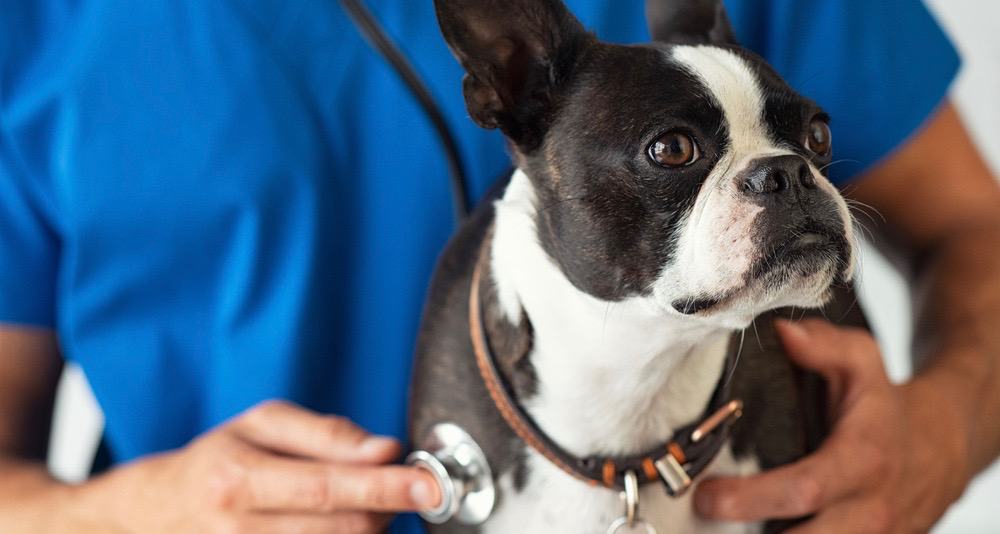
They are known for having the clouded film over their eye lens called cataracts. Bostons are known to get cataracts during the entirety of his life. There have been documented cases of cataracts in Boston Terriers as young as 8 weeks old.
For the heart murmurs, you can give your Boston a low-sodium diet, and limit exercise. You can also see your vet about medications.

